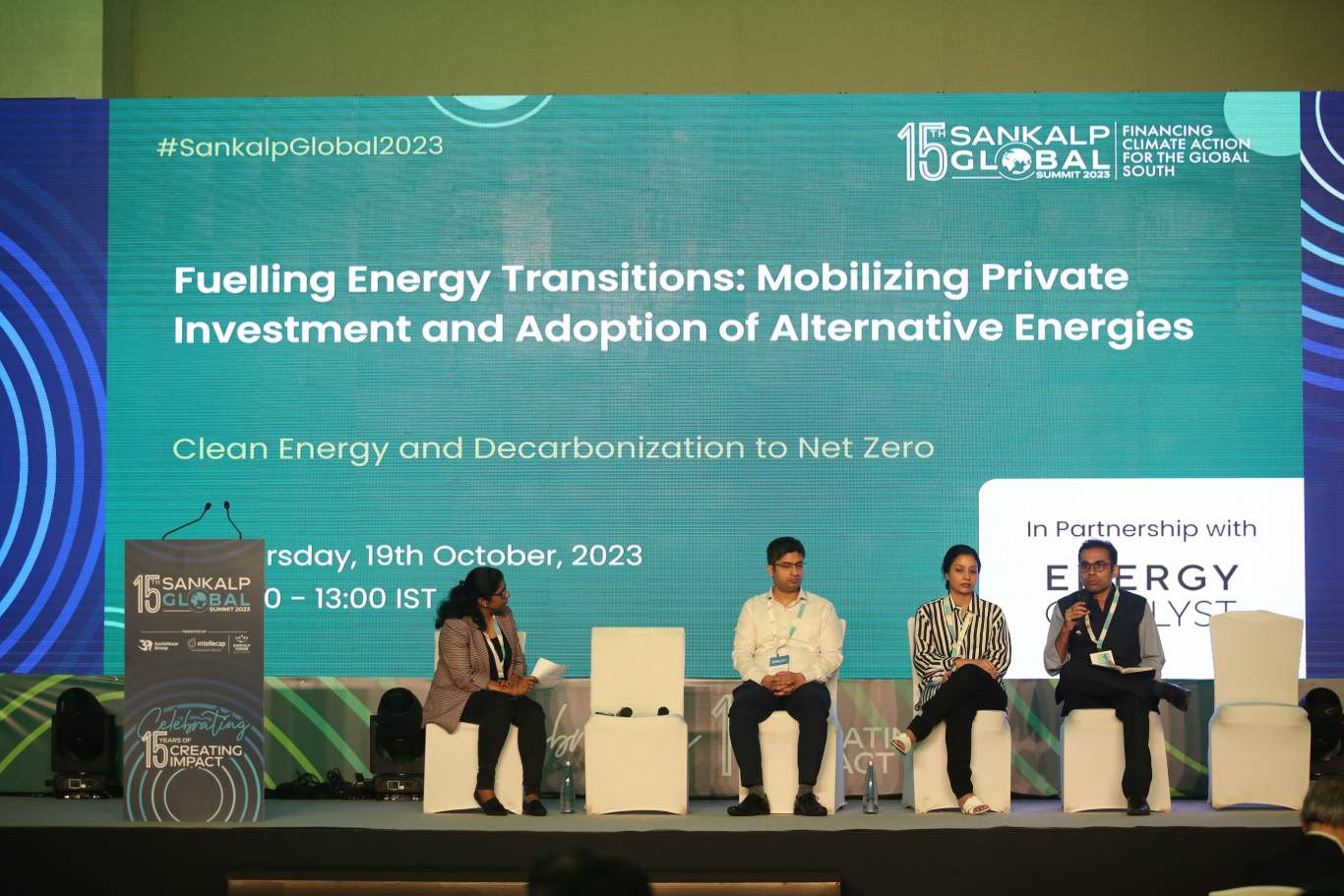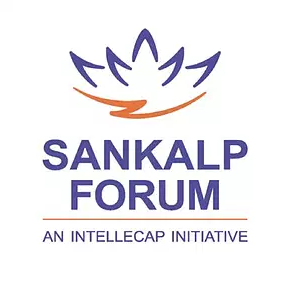

SPEAKERS |
|
Background
Access to finance is crucial for accelerating energy transitions in developing and emerging economies where reliable and affordable energy access remains a critical challenge. However, it remains disproportionate in different parts of the world. Developing and emerging economies that account for two-thirds of the world population receive only one-fifth of the global investments in clean energy. The International Energy Agency (IEA) estimates an investment requirement of $1.7 trillion annually for clean energy in developing economies until 2030. However, the sector has attracted $544 billion in foreign direct investments in 2022, leading to a gap of $1.15 trillion annually.
Innovation continues to be the key driver for energy transition with entrepreneurs playing a key role in fostering it. Through innovative and low-carbon solutions, entrepreneurs support in making access to energy affordable, thereby enabling energy transitions. However, there exist barriers for entrepreneurs and innovators in scaling-up their innovations-access to finance being one of them.
This session delved into cutting-edge energy technologies that hold the key to a greener future and explored groundbreaking innovations while uncovering the pivotal role of startups in catalyzing change. The session was convened in a discussion by leading experts and industry pioneers, and policymakers to explore strategies and catalytic shifts needed to amplify private investment and widespread adoption of these alternatives.
This session was powered by Energy Catalyst, the largest UK funding programme for driving inclusive clean energy by funding innovations across Africa, Asia and Indo-Pacific. So far, it has supported 256 projects across 38 countries and deployed £120 million of Official Development Assistance (ODA) funding till date to develop innovative technologies and business models that address energy access needs.
Emergent energy transition challenges that the Global South
The experts highlighted three critical gaps for energy transition in the Global South.
- According to Sumesh, ‘even after adding all budgets, ODAs and other sources, the financing for clean energy transitions remains small’. He further added that at present there are a few innovative methods of financing that enable greater deployment of affordable capital to innovators/entrepreneurs.
- Dated and lack of adequate infrastructure for generation, transmission and distribution across poorer regions remains a crucial bottleneck in improving access to alternative energy sources. Since alternative energy solutions are intermittent, there remain challenges in integrating it in the absence of stable grid infrastructures.
- There remains high dependability on few energy sources with limited innovation to explore new energy sources-pointing towards lack of sustainability.
Actionable strategies for catalyzing private investment and adoption of sustainable energy solutions
While the private sector is set to play a critical role in mobilizing finance for advancing energy transitions, the international and development finance institutions’ role would be that of catalysing these investments. Priya highlighted that there is a need for venture capital inflow in addition to concessional capital from Development Finance Institutions (DFIs) from early to growth stage enterprises with a risk free layer of philanthropic capital. She further identified the need for grant funding for early-stage enterprises to support them in commercialization and building capacity development.
While Sumesh highlighted the massive role of guarantees to take the first loss to support early stage enterprises, Avinash added that ‘innovations, challenges and solutions are context based’. DFIs or funds are required to enter where entrepreneurs and innovators need them the most i.e. in ‘bringing in patient capital through collaborations and partnerships with other investors to leverage blended finance or innovative financing’. He further added that although currency risk mitigation and blending of finance are innovative ways of mobilizing affordable capital for innovators/entrepreneurs, it is based on the context-scope of the challenge being addressed, profile of enterprises, expected risk and return. He also emphasized that ‘investors need to be patient with the journey and entrepreneurs to keep an eye and look at the dynamism of the challenges’.
Avinash further emphasized on the role of a ‘good framework for adoption of technology based on three A’s- advantage, access, affordability’ and that entrepreneurs could work at strengthening their value proposition while also working on the behavioural aspects to delivery.
Transformative shifts required in the ecosystem to accelerate the energy transition
The experts identified some of the key transformative shifts that are required in the ecosystem to enable innovation and to accelerate energy transitions.
Sumesh emphasized that DFIs and governments could get early to growing areas in the upcoming sectors such as green hydrogen to create a foundation for entrepreneurs entering the space. He also highlighted that DFIs and governments could play an important role in building technical support. He concluded with a remark that there is a need to look at new models, however, in a way that ‘Sarkaar, Samaaj and Vyapar do not get disrupted’.
According to Priya, while accessing finance the innovators or entrepreneurs should look at-the size of market for innovative solutions, differentiate their technologies and highlight their uniqueness, team-up with scientists or technical experts to get credibility and identify the type of funding that is suited to them.
Avinash identified that ESG and governance are important areas and necessary for the next round of growth, hence, there is a genuine case for building on ESG and governance, other practices and policies for building scale.




